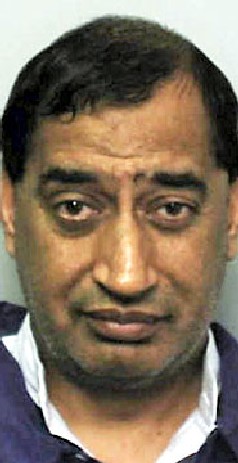
 The case Munir and Tokeer Hussain along with the very different case of the late Steve Thorburn illustrates the desirability of the judicial reforms suggested by the British Gazette featured on this website.
The case Munir and Tokeer Hussain along with the very different case of the late Steve Thorburn illustrates the desirability of the judicial reforms suggested by the British Gazette featured on this website.
Herewith a brief synopsis of the facts of the case:
The Hussain family’s ordeal began as the returned home from their mosque on 3rd September. Mr Hussain’s, his wife, daughter and two sons to find three criminals burglarising their home in High Wycombe, Buckinghamshire.
The burglars tied the family up and forced onto the floor after being threatened with death. One of Mr Hussain’s sons managed to escape and alerted Mr Hussain’s younger brother Tokeer, who lived a few doors away.
Mr Hussain who had been punched by his attackers managed to escape after throwing a coffee table at his attackers. He and Tokeer chased the gang and brought one of the men the ground in a front garden.
The two brothers then beat the burglar while he lay on the ground, using a cricket bat, a pole and a hockey stick – leaving him with a brain damage.
Munir Hussain was gaoled for 30 months and Tokeer Hussain 39 months. It is likely that they will appeal – most certainly the sentence, and possibly the conviction as well.
Had the British Gazette’s reforms had been implemented, the Husain brothers would have been able to take their pick as to which judicial process they wished to face.
Option One would have been the Crown Court which with the British Gazette’s reforms would be a trial without a jury, with the judge been assisted by two Stipendiary Magistrates sitting as assessors alongside the judge.
Option Two would be to trial at the Court of Assize sitting before a judge who would have been elected by the people (as in the U.S.A.) and with a jury of twelve ordinary British Citizens would would have decided, A. the guilt or innocence of the defendants [the Hussains] and B. the punishment/sentence [counselled by the judge].
The choice of which path to choose would be the brothers and not the Crown Prosecution Service.
Appeals in the case of Option One would be heard by the Court of Appeal. Appeals in the case of Option Two would be split. Appeals against the verdict would be heard by the Court of Appeal. Appeals against sentence would be heard by a reformed Grand Jury of twenty four members of the British Public who would reassess the case and verdict.
Many will wonder what is the opinion of the British Gazette on the case.
Well, unlike certain other periodicals the British Gazette will not pronounce definitively as we have not seen all the court papers. However, we would have thought a partial or wholly suspended sentence would have within the bounds of possibility. The British Gazette would point out that having convictions for GBH will mean that it will be difficult and very expensive for each bother to obtain insurance for their homes, the business and the cars. This will make the running of their business difficult. Furthermore, they may well face a civil action for damages from the burglar. The British Gazette think that these are punishments enough.
Speaking the Truth unto the Nation
